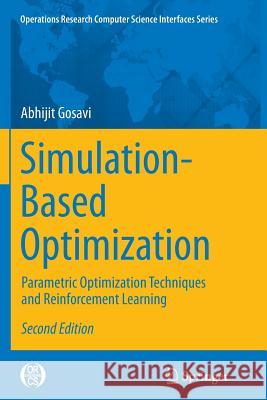Simulation-Based Optimization: Parametric Optimization Techniques and Reinforcement Learning » książka
topmenu
Simulation-Based Optimization: Parametric Optimization Techniques and Reinforcement Learning
ISBN-13: 9781489977311 / Angielski / Miękka / 2016 / 508 str.
Kategorie:
Kategorie BISAC:
Wydawca:
Springer
Seria wydawnicza:
Język:
Angielski
ISBN-13:
9781489977311
Rok wydania:
2016
Wydanie:
Softcover Repri
Numer serii:
000044039
Ilość stron:
508
Waga:
0.74 kg
Wymiary:
23.39 x 15.6 x 2.74
Oprawa:
Miękka
Wolumenów:
01
Dodatkowe informacje:
Wydanie ilustrowane











